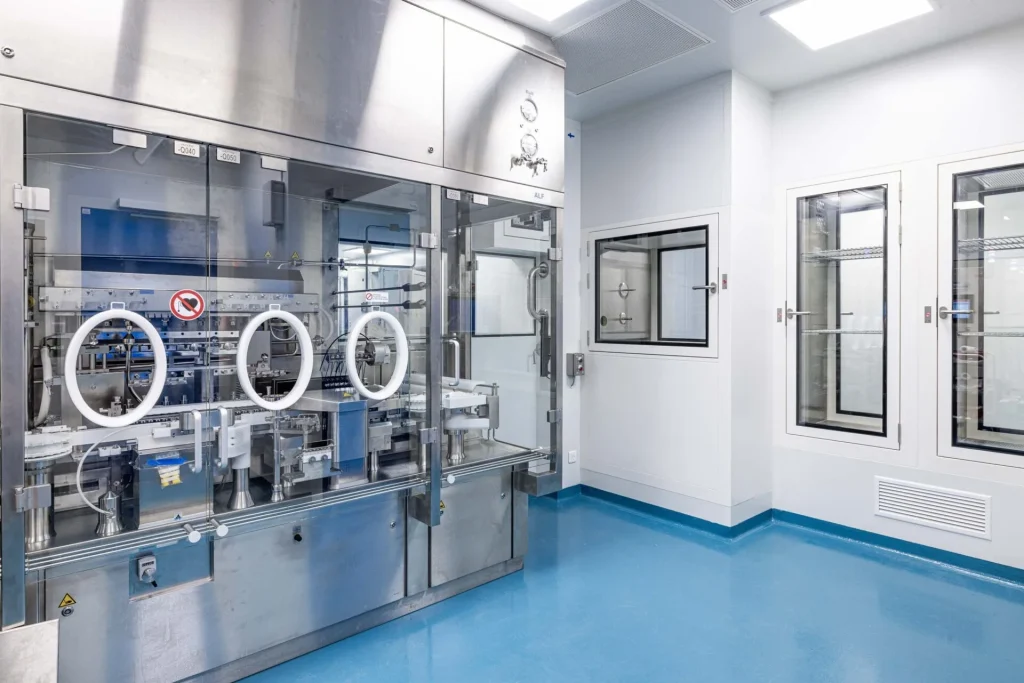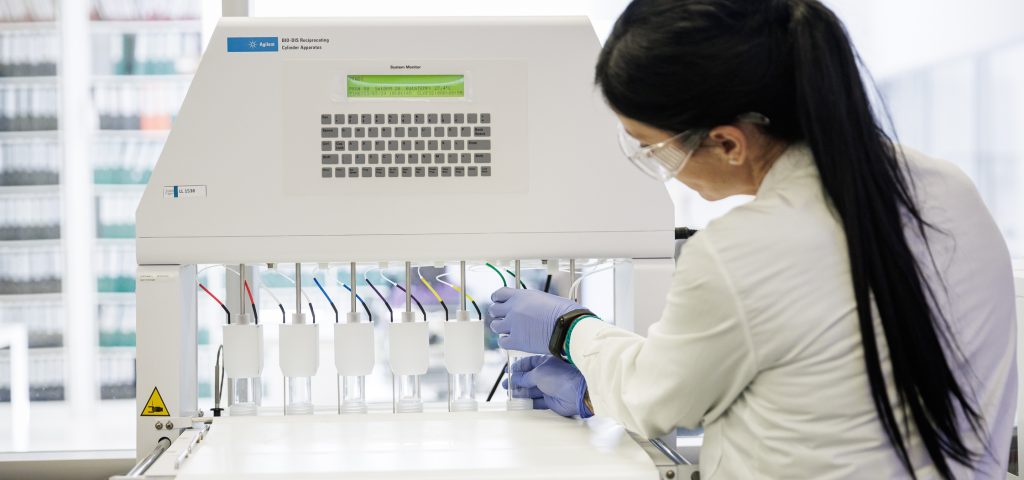The pharmaceutical industry demands rigorous oversight and control over its manufacturing processes to ensure the consistent quality of drugs and therapies. Among the most critical aspects of pharmaceutical production is process validation, a systematic approach that confirms a manufacturing process’s ability to consistently produce a product meeting its predetermined specifications and quality standards. This guide delves deep into the concept, offering insights into the stages of process validation, its types, and regulatory guidance provided by authorities like the Food Drug Administration (FDA) and GHTF. Whether you’re an expert or a beginner in the industry, this article will help you grasp the essential elements of process validation.
What is Process Validation?
Process validation is defined as the collection and evaluation of data throughout the production process and life cycle that establishes scientific evidence that a process is capable of consistently delivering quality products. It involves creating documented evidence that the entire process—from raw materials to the end product—operates within controlled limits and meets all quality standards.
This validation process is essential in ensuring patient safety and regulatory compliance, especially given the complex nature of pharmaceutical manufacturing processes. A validated process ensures that every drug product maintains consistent product quality and efficacy throughout commercial production. Maintaining consistent process control across the entire life cycle of a product is a fundamental expectation in the pharmaceutical process validation framework.
Types of Process Validation
There are four main types of process validation:
1. Prospective Validation
Performed before the commercial manufacturing or commercial production of a new product, this type of validation is conducted during the development process or design stage to ensure the manufacturing process is well-designed and operates as expected. It’s a key part of the process design process and ensures that all acceptance criteria are met.
2. Concurrent Validation
Concurrent validation occurs during routine production processes and involves collecting objective evidence and data in real-time. This verification process is especially useful for medical devices or drug products when immediate product release is required, but the validation process is still underway.
3. Retrospective Validation
This validation type uses historical evaluation data from past production runs to confirm the effectiveness of a process. Often, companies employ this type when the manufacturing process has a well-established quality assurance track record and documented positive process performance.
4. Revalidation
When significant changes occur in the manufacturing process, equipment, or raw materials, revalidation ensures these modifications have not impacted the quality product or product quality. It also serves as a means of continuous quality improvement and supports the life cycle focus of process validation in the pharmaceutical industry.
Process Performance Qualification (PPQ)
A critical element of process validation is Process Performance Qualification (PPQ), sometimes referred to as process qualification or PPQ pharma. This stage involves testing the manufacturing process under actual production process conditions to verify that it can consistently produce products that meet predefined acceptance criteria and quality standards.
Key components of PPQ:
- Pre-qualification: Ensures all equipment has been correctly installed (Installation Qualification [IQ]) and operates as intended (Operational Qualification [OQ]).
- Performance Qualification (PQ): The process and equipment run at full scale to confirm they consistently meet quality standards and product specifications.
PPQ is essential for both regulatory requirements and for ensuring the validated process can transition to robust commercial manufacturing.
The Three Stages of Process Validation Method
Process validation is generally divided into three key stages (as per FDA process validation guidance and global regulatory bodies):
Stage 1: Process Design
The initial step is the design process for the drug product. Manufacturers must define the critical process parameters (CPPs) and critical quality attributes (CQAs) that affect product quality. This phase often uses process analytical technology, a risk based approach, and focuses on the intended use and good manufacturing (GMP) strategies for the process.
Stage 2: Process Qualification
In this stage, qualification validation activities shift to validating the process and equipment in a real-world environment. This includes:
- Installation Qualification (IQ): Ensuring that all equipment used in the process has been properly installed and complies with the validation master plan and intended use.
- Operational Qualification (OQ): Testing the equipment under operational conditions to confirm it meets process parameters and quality assurance goals.
- Performance Qualification (PQ): Full-scale runs of the commercial manufacturing process to confirm consistent achievement of product specifications and process control.
Stage 3: Continued Process Verification
This is the ongoing part of process validation—called continued process verification (CPV)—where data is continuously analyzed to ensure the manufacturing processes remain in a state of control. Companies leverage scientific evidence and data process monitoring to meet and sustain all quality standards over the product’s life cycle.ompanies can detect any deviations early and make adjustments to maintain consistent quality.
Regulatory Guidance for Process Validation
Both the Food Drug Administration (FDA) and the Global Harmonization Task Force provide extensive guidance to support validation activities in pharmaceutical manufacturing and medical devices. These agencies stress:
- Defining critical process parameters to control the pharmaceutical manufacturing processes.
- Establishing scientific evidence and objective evidence during the process qualification stage.
- Ensuring ongoing process control and effectiveness through process verification, process validation requirements, and monitoring.
Following these principles ensures compliance with regulatory requirements, supports the quality system regulation, and promotes a culture of quality assurance that aligns with stakeholder expectations for both pharmaceutical process validation and medical device validation.
Example of Process Validation in Pharmaceutical Manufacturing
A classic example is found in aseptic filling, a critical stage for sterile drug products. Process qualification ensures filling equipment operates within predefined conditions, safeguarding product quality and sterility. The validation process includes cleaning validation, testing the sterility of raw materials, evaluating environmental conditions, and confirming proper equipment operation. This example highlights the role of installation qualification, operational qualification, and performance qualification in maintaining good manufacturing practices.

Benefits of Process Validation
Process validation offers significant benefits across the pharmaceutical industry, including:
Enhances Reputation and Customer Trust
Consistent delivery of high-quality drug products and compliance with FDA process validation and quality system regulation criteria bolster a company’s reputation, solidifying trust with regulatory agencies, healthcare providers, and patients.
Assured Product Quality and Patient Safety
Through the identification and control of critical process parameters and critical quality attributes, manufacturers minimize the risks of product defects and ensure that only quality products reach the market. This consistent focus on process control and documented product validation process fulfills both regulatory requirements and stakeholder expectations.
Regulatory Compliance and Market Access
Completing thorough process validation and maintaining a validation master plan are often prerequisites for product approvals and ongoing commercial production. This ensures companies remain inspection-ready and able to fulfill global regulatory requirements.
Reduced Production Costs and Operational Efficiency
Validated processes lead to fewer failures and less wasted material, improving the cost-efficiency of the manufacturing process. Strong process validation supports efficient operations and scalability in commercial manufacturing.
Continuous Process Improvement
Ongoing continued process verification enables real-time identification of process drift or variability. This risk based approach drives continual refinement and optimization, ensuring the ability to consistently manufacture quality products across the entire life cycle.
Facilitates Scale-Up and Technology Transfer
A well-documented and robust validation and qualification framework simplifies the transition to larger-scale or new-site manufacturing, ensuring product quality and process performance remain intact.
Common Challenges in Process Validation
Despite its advantages, the validation pharmaceutical industry faces challenges such as:
- Accurately identifying critical quality attributes and process parameters during the design stage.
- Adapting the validation process to evolving technologies, changing regulatory requirements, or when introducing new equipment / medical devices.
- Ensuring each phase of the qualification validation and process validation pharma strategy is supported by robust scientific and objective evidence.
Proper process validation training, thorough master plan documentation, and employing a risk based approach to all validation activities ensure companies in the pharmaceutical industry and medical device sector can meet verification vs validation standards and continue to produce quality products.
Process validation in the pharmaceutical industry is far more than a regulatory formality—it’s a cornerstone of producing safe, effective, and high-quality drug products. By incorporating a robust validation master plan, employing good manufacturing techniques, and focusing on process design, qualification, and verification, organizations can elevate product safety, maintain regulatory compliance, and create a foundation for sustained commercial success in pharmaceutical and medical device markets.
FAQs about Process Validation
What is the meaning of process validation?
Process validation is a documented, systematic approach used in the pharmaceutical industry (and related fields like medical devices and food) to collect, evaluate, and interpret data throughout the product lifecycle. Its purpose is to provide scientific and objective evidence that a specific manufacturing process can consistently produce a product (such as a drug product or medical device) that meets predetermined quality standards and regulatory requirements. Process validation ensures that all critical parameters and controls in the manufacturing process reliably result in a quality product, from raw materials through to the end product.
What are the 4 types of process validation?
The four main types of process validation are:
- Prospective Validation: Conducted before commercial production begins. It is performed during the product and process development phase to ensure the planned manufacturing process will produce products that meet quality standards.
- Concurrent Validation: Performed during actual commercial production of a product. Data is collected and evaluated in real time from current production batches.
- Retrospective Validation: Uses historical data from previously produced batches to confirm that established processes have consistently produced products meeting quality criteria.
- Revalidation: Required whenever changes are made to the process, equipment, raw materials, or when a process shows signs of deviation, ensuring continued process control and product quality.
What are the 5 major phases in the validation process?
The five major phases often recognized in process validation (particularly in the context of equipment or system validation) are:
- User Requirements Specification (URS): Defining what the system or process should do, including intended use and acceptance criteria.
- Design Qualification (DQ): Ensuring the design meets requirements and regulatory expectations.
- Installation Qualification (IQ): Verifying equipment and systems are installed correctly according to specifications.
- Operational Qualification (OQ): Verifying the equipment and systems function as intended under all anticipated operating ranges.
- Performance Qualification (PQ): Demonstrating that the process or system consistently performs according to expectations during routine production.
What are the three stages of process validation?
As outlined by the FDA and global regulatory authorities, process validation is generally broken down into these three stages:
Stage 3: Continued Process Verification
Ongoing assurance is provided during routine production that the process remains in a state of control by monitoring data and trends over the lifecycle of the product.
Stage 1: Process Design
The commercial process is defined based on knowledge gained through development and scale-up activities. Critical process parameters and quality attributes are identified.
Stage 2: Process Qualification
The process design is evaluated to determine whether it can reproduce product quality consistently. This includes Installation Qualification (IQ), Operational Qualification (OQ), and Performance Qualification (PQ).
